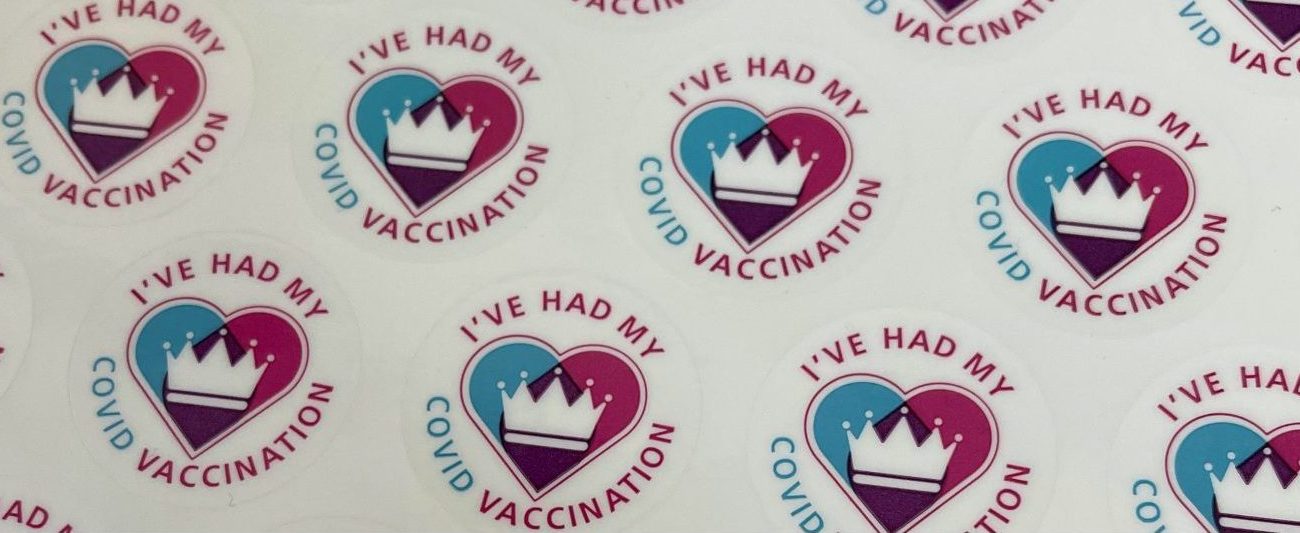The Government’s recent coronavirus press conference on the 5th April 2021 confirmed that so-called Covid certification methods would be trialed this spring to enable the running of some large–scale pilot events such as the FA Cup Final at Wembley.
The Prime Minister Boris Johnson confirmed Covid certification would be a way of assuring the venues and others that an individual attendee does not pose a Covid risk. Certification could be in the form of antibody test results showing immunity, vaccination status or a negative test result.
Aside from the trial, no final decisions have been made as to the implementation of Covid certification more widely. However, Michael Gove is conducting a review into how testing, vaccination status and immunity can be used to help open the UK economy more generally.
Though it has not yet been confirmed, it is looking increasingly likely that some form of Covid certification will be used in the near future, not just at large–scale events such as festivals or sports stadiums, but also to attend more mundane venues such as theatres, conferences and perhaps even restaurants.
This will add further challenges to the HR professional’s already long list of ethical and practical COVID-19 hurdles to be faced in the coming months.
Employers and their HR departments are already likely to face dilemmas such as whether to allow vaccinated staff to go on holiday once foreign travel is allowed, whilst simultaneously making decisions around whether staff who haven’t been vaccinated, or who are vulnerable, should be asked to remain working from home. Employers will need to think about how ethical their decisions are. For example, requiring certain staff to remain at home whilst permitting others to travel for business or pleasure and potentially bring back different variants of the virus, is an example of a very divisive practice.
Company socials will also prove difficult to navigate, particularly those where spouses or family members are usually invited. Will employers be obliged to check the vaccination status or recent test results of family members too? Again, companies will be balancing the health and safety of staff against factors such as diversity and inclusion and discrimination.
There will be further discrimination risks arising in the next couple of months too. As the population is gradually vaccinated, will employers be insisting on negative lateral flow tests for those groups who have not been vaccinated? Or will employers feel the need to treat them differently in some way to protect the health of all staff? If so, indirect discrimination issues will likely arise, particularly where the unvaccinated members of staff are disabled or pregnant for example and have therefore been advised against being vaccinated.
Furthermore, the vaccine rollout in the UK is fundamentally age-based. Young members of staff in their early twenties will probably be the last to be vaccinated, only receiving their first dose of a vaccine by the end of July at the earliest, if all goes according to the Government’s plan. This means these members of staff will not be fully protected until the end of October 2021. Meanwhile, the (usually older) management teams within organisations will have been vaccinated and the unlocking of the economy will be moving on swiftly, likely by June. Even if, despite these factors, organisations effectively avoid instances of indirect age discrimination, the factors will certainly exacerbate generational differences in many workplaces.
Finally, coming back to the potential implementation of Covid certification, many employers and their staff, such as those in the hospitality and events industries, will need to take on responsibilities they have never had to deal with before: checking health documents, denying entry to customers unable to provide certification, detecting fraudulent Covid certification documents, and understanding the basic science behind COVID-19 transmission (for how long does antibody immunity last? Are those who are vaccinated still able to pass on the virus?). This is on top of the Covid measures that are already being navigated by HR professionals and staff alike.
Law and best practice around these upcoming challenges will be uncertain, given that novel situations are presenting themselves that modern society has not needed to navigate before. Despite the lack of detailed government guidance and wider clarity, fingers are often pointed at employers, as they are retrospectively judged to have made the wrong call.
With no step-by-step roadmap for HR professionals to follow, what should they do? Ultimately, this will come down to good HR thinking and practice. Employers should start brainstorming now and considering the difficult scenarios they are likely to face in the coming months. In terms of guiding stars, it is about coming back to the fundamental principles that have guided employers through this pandemic so far:
- Doing whatever is reasonably practicable to protect the health, safety and welfare of staff and customers.
- Being acutely aware of the laws on discrimination, both direct and indirect.
- Thinking about each potential approach from a CSR perspective.
- Safeguarding diversity and inclusion (and inclusion must of course extend to those who simply choose not to get vaccinated).
It is also important to maintain dialogue with staff about any concerns they may have and the changes that will be made to keep the workplace COVID-secure over the next couple of months. Where employers work collaboratively with their staff, there is more opportunity to build a consensus around the new approach and for staff to feel that they own the ideas. This formula will minimise the likelihood of conflict or grievance.
At Forbury People we have experience dealing with change management, health and safety, and ethical workplace issues. Should you need assistance navigating any of the issues discussed above, please contact the Forbury People team on 0118 953 3929 or via email at contact@forburypeople.com.

